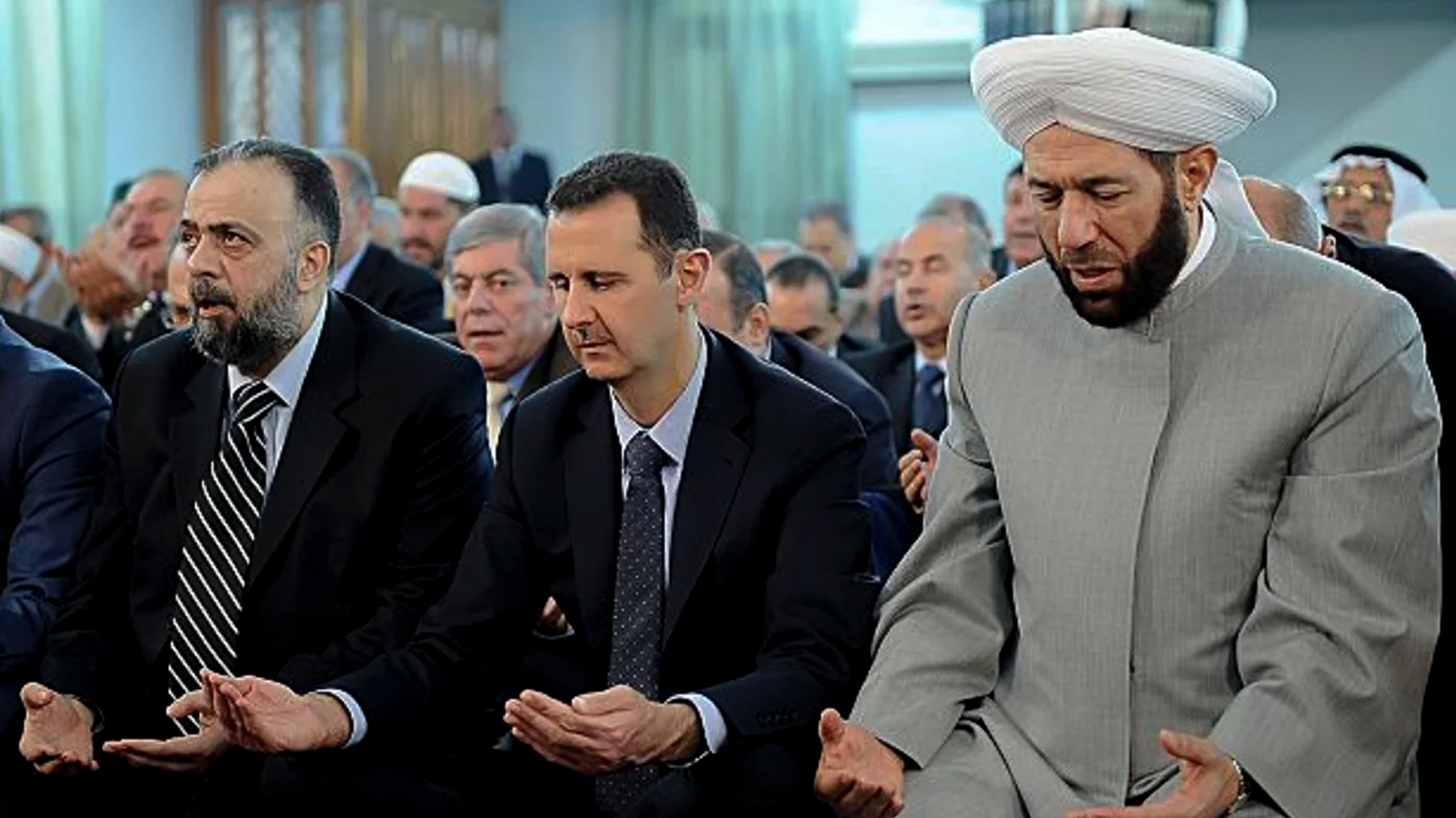Former Syrian Mufti Ahmad Hassoun, known as the "Mufti of Barrel Bombs," has been arrested
He gained notoriety during the height of the war for statements that appeared to endorse the use of barrel bombs against rebel-held regions, particularly in Aleppo, his hometown.

By Ahora Qadi
ERBIL (Kurdistan 24) – Syrian authorities reportedly arrested former Grand Mufti (Top Islamic scholar in Syria who issues religious rulings -fatwas- and advises on Sharia law.) Ahmed Badr al-Din Hassoun on Wednesday at Damascus International Airport as he attempted to flee the country for Jordan under the pretext of undergoing urgent surgery.
According to the Syrian Observatory for Human Rights (SOHR), Hassoun’s passport had already been stamped by the Immigration and Passports Directorate before security personnel intervened. A group of officers from the General Security branch then escorted him to an undisclosed location.
A photo published by the Observatory, purportedly shows Hassoun blindfolded after his arrest. Meanwhile, Syria’s state-run Al-Watan newspaper confirmed the detention, stating that security forces apprehended him in the VIP lounge at the airport without disclosing the reason for his arrest.
Attempted Medical Travel to Jordan
Reports suggest that Hassoun had informed Syrian authorities of his intention to travel to Jordan for an urgent medical procedure. His request was reportedly approved, and government vehicles transported him and his family to the airport. He was awaiting his flight in the VIP lounge when a security vehicle arrived, and officers took him away, leaving his family unharmed.
As of now, Syria’s Interior Ministry has not issued any official statement confirming his arrest or providing details on the circumstances surrounding his detention.
Controversial Legacy and Support for the Assad Regime
Hassoun served as Syria’s Grand Mufti from 2005 until 2021, when former President Bashar al-Assad abolished the position. Throughout the Syrian conflict, he was a staunch supporter of the regime, frequently defending government policies and military operations against opposition-held areas.
He gained notoriety during the height of the war for statements that appeared to endorse the use of barrel bombs against rebel-held regions, particularly in Aleppo, his hometown. In a widely circulated television appearance, Hassoun declared, “Any opposition area will be hit by shells and completely destroyed.”
His unwavering support for Assad led to widespread criticism, both domestically and internationally. His arrest, however, marks a striking turn of events, as former regime loyalists continue to face scrutiny under Syria’s shifting political landscape.
